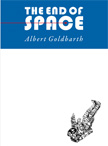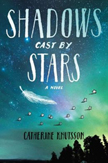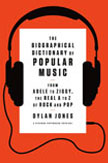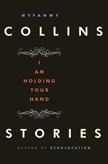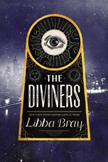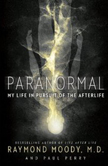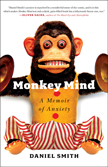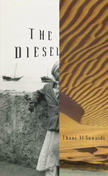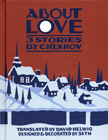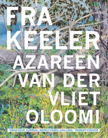Albert Goldbarth
Tavern Books ($10)
This 36-page collection, inspired by the winding down of NASA’s space exploration program, uses its poem-essays to advocate a continued fascination with the greater unknown. Space is not a metaphor for Albert Goldbarth here, nor does it need to be—the cosmos are a stable and omnipresent source of untapped mystery, and this focus lends the collection both gravity and grandiosity. We’re happy to sit in Goldbarth’s cockpit as he takes us through his various ruminations, touching upon Hubble and Buzz Aldrin and Star Trek alike.

